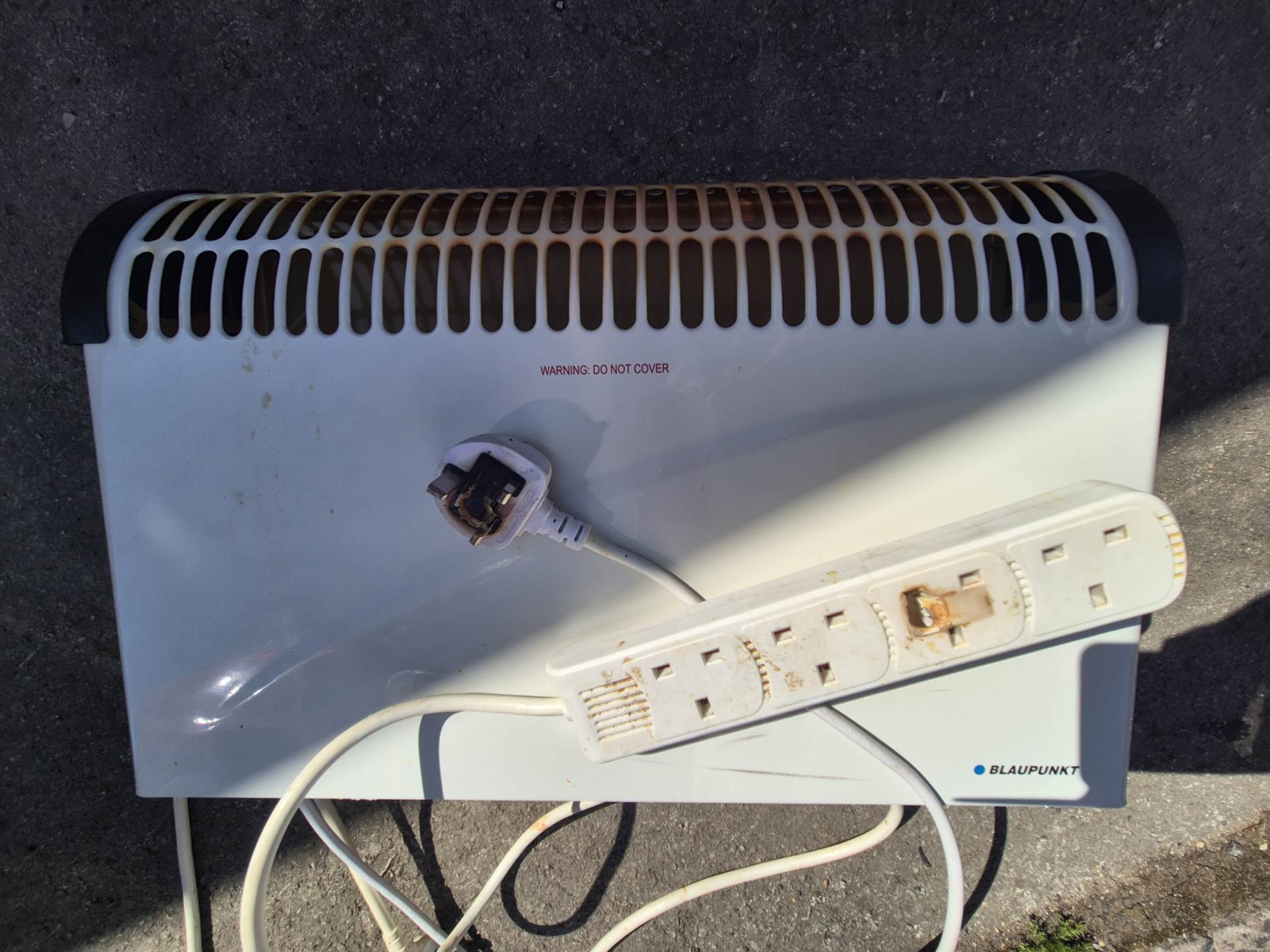
Date Published 13 May 2025
Regular inspections are extremely important when it comes to property.
We did a regular inspection at one of our HMOS in the Nottinghamshire Area to find the tenant using a very dangerous portable heater. Luckily this didn't cause any serious issues and we were able to re educate the tenant about the dangers of portable heaters and extension cables.
As responsible agents we disposed of the items away from the property to prevent issues.
If we didn't conduct regular inspections this could be a different story with a very sad outcome for tenants and landlords.
Living in a House in Multiple Occupation (HMO) offers a vibrant community, but it's crucial to be aware of potential hazards. One significant risk, especially as the weather cools, is the use of portable heaters. While they might seem like a quick fix for a chilly room, they can pose serious dangers if not used correctly.
Fire Risk: A Silent Threat
Portable heaters are a leading cause of house fires. Here's why:
* Overloading Sockets: HMOs often have a limited number of outlets. Plugging high-wattage heaters into extension cords or overloaded sockets can easily overheat the wiring, leading to a fire.
* Flammable Materials: Placing heaters too close to curtains, bedding, furniture, or clothing is incredibly dangerous. These materials can ignite quickly from the direct heat.
* Tipping Over: Many portable heaters are not very stable and can be easily knocked over, especially in shared living spaces or smaller rooms. If a heater falls onto flammable materials, a fire can start rapidly.
* Faulty or Damaged Heaters: Older or poorly maintained heaters can have frayed wires, loose connections, or internal faults that increase the risk of sparks and fire.
Carbon Monoxide Poisoning: The Invisible Danger
Some portable heaters, particularly those that burn fuel like propane or kerosene, can produce deadly carbon monoxide (CO) gas. This is especially concerning in enclosed spaces like HMO rooms where ventilation might be limited.
* Silent Killer: CO is odorless, colorless, and tasteless, making it impossible to detect without a CO alarm.
* Serious Health Risks: Even low levels of CO exposure can cause flu-like symptoms, headaches, dizziness, and nausea. Higher levels can lead to loss of consciousness and even death.
Burns and Injuries: Immediate Harm
Beyond fire and CO, portable heaters can cause direct injuries:
* Contact Burns: The surface of a portable heater can become extremely hot, causing severe burns if touched accidentally. This is a particular risk for children and vulnerable adults.
* Tripping Hazards: Power cords running across walkways can create tripping hazards, leading to falls and injuries.
Protecting Yourself and Your Housemates
In an HMO setting, the safety of everyone is paramount. Here are some crucial steps to take:
* Landlord Responsibility: Landlords have a legal responsibility to ensure the property is safe, including providing adequate and safe heating. Report any heating issues to your landlord immediately.
* Avoid Portable Heaters: The safest approach is generally to avoid using portable heaters altogether in HMOs unless explicitly permitted and deemed safe by the landlord.
* If Portable Heaters are Necessary (with permission):
* Use Only New and Certified Heaters: Ensure the heater has safety features like automatic shut-off if it tips over.
* Plug Directly into a Wall Socket: Never use extension cords or multi-plugs.
* Keep Away from Flammables: Maintain a safe distance of at least one meter (three feet) from curtains, bedding, furniture, and clothing.
* Place on a Stable, Level Surface: Ensure the heater cannot be easily knocked over.
* Never Leave Unattended: Turn off the heater when you leave the room or go to sleep.
* Regularly Inspect: Check for any damage to the cord or the heater itself.
* Never Use in Bathrooms or Damp Areas: This increases the risk of electric shock.
* Install Carbon Monoxide Detectors: If any fuel-burning appliances are present (even if it's a neighbor's heater), ensure there are working CO alarms on each floor and ideally in every bedroom. Test them regularly.
* Know Your Fire Exits and Procedures: Familiarize yourself with the building's fire safety plan and know how to evacuate quickly and safely.
Let's prioritize safety in our HMOs. By understanding the dangers of portable heaters and taking preventative measures, we can create a safer living environment for everyone. If you have any concerns about heating safety in your HMO, speak to your landlord or a housing advisor. Stay warm and stay safe!